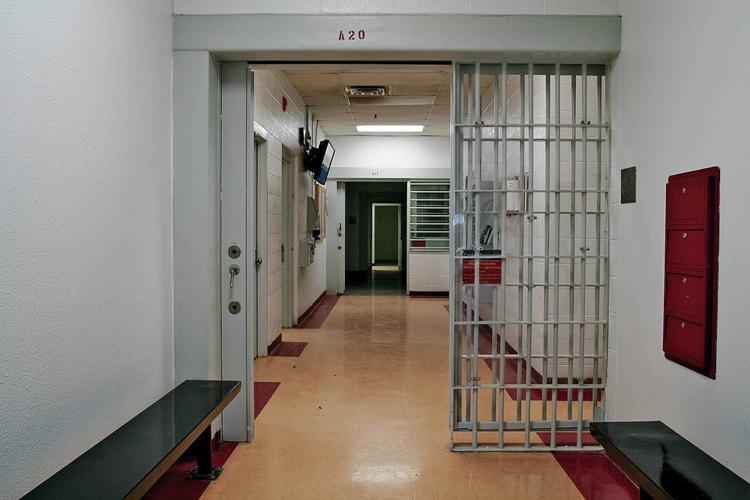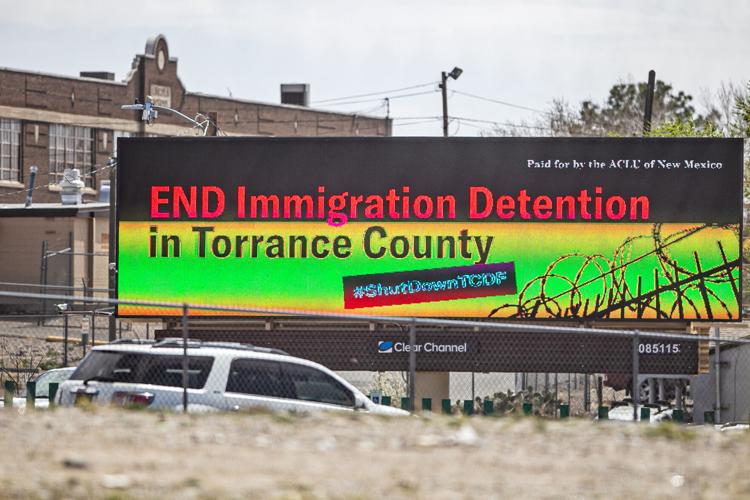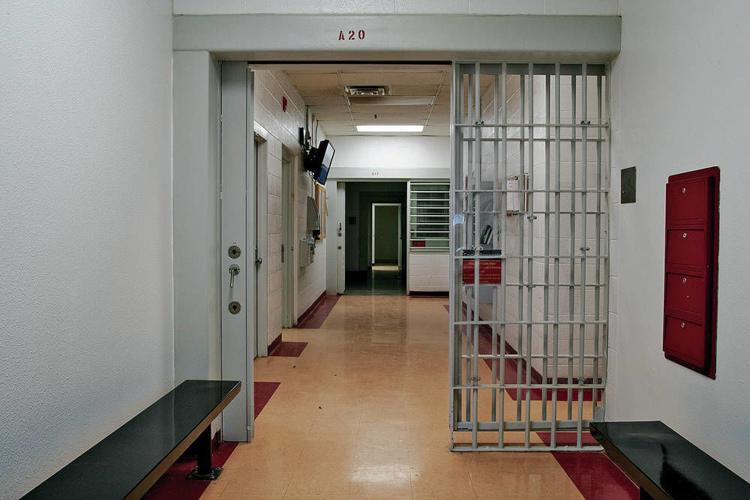The three federal immigrant detention centers in New Mexico house a combined 1,820 people and are about 78% full, according to data from U.S. Immigration and Customs Enforcement.
It’s not yet certain whether the recent election of former President Donald Trump, a Republican, to another term in office means the agency will need to increase its workforce and expand its capacity in this blue border state to prepare for rising numbers of detainees.
It would be “premature to speculate” on that, ICE spokesperson Leticia Zamarripa wrote in an email last week.
But the federal agency isn’t waiting to find out if Trump will make good on his campaign promise for mass deportations.
It began seeking more space for immigrant detainees in the region surrounding El Paso even before the Nov. 5 election, issuing a “request for information” in August for “approximately 850 to 950 detention beds … for adult noncitizens” within two hours of its El Paso office and sub offices in Las Cruces, Roswell, Chaparral and Albuquerque.
This could lead to an increase of about 30% in the capacity of New Mexico’s detention facilities — at least one of which has faced calls for closure in recent years over reports of poor conditions for detainees, many who were seeking asylum. The Torrance County Detention Facility saw hunger strikes over the conditions and a high-profile suicide.
Immigrant advocates and U.S. senators urged ICE to end its contract with private prison operator CoreCivic to run the facility after the Department of Homeland Security’s Office of the Inspector General issued reports in 2022 detailing subpar conditions and lack of access to medical, legal and language services. But CoreCivic continues to operate the facility.
Data shows ICE could potentially expand its beds in New Mexico by greater numbers than 950 even without the need for new construction.
The detainee data provided by ICE for its facilities in Torrance, Cibola and Otero counties appears to refer only to the number of its beds under existing contracts — not the space of the buildings, which have room for many more beds.
While an ICE spokesperson wrote in an email its Torrance County facility has a capacity of 505 beds, a spokesperson for CoreCivic says it can hold “more than 900.”
The discrepancy between the capacity reported by the federal government and CoreCivic for the Cibola County Correctional Center is even more stark: ICE says it’s 315; CoreCivic says “more than 1,110.”
N.M. beds available?
According to the New Mexico Immigrant Law Center, at least three applicants have responded to ICE’s inquiry. The organization has filed a public records request for the applications under the federal Freedom of Information Act but is still waiting to receive them, senior attorney Sophia Genovese said.
The law center knows applications were submitted from parties in Torrance, Cibola and Lea counties, she said; however, it doesn’t know whether private prison operators or government entities have expressed an interest in providing the beds.
“Advocates are somewhat concerned there will be direct contracting relationships between the federal government and private corporations to create this bed space, but we’re still trying to find that information out,” she said.
Torrance County has contracts with both the federal government and CoreCivic for operation of the county-owned immigrant detention center in Estancia.
The population there has rebounded nearly to full capacity — 501 of its 505 ICE beds are occupied, according to the agency — after having dwindled to only three detainees in December 2022 amid the reports of inhumane conditions and the August 2022 suicide of 23-year-old Brazilian asylum-seeker Kesley Vial.
The annual contract between Torrance County and CoreCivic had been set to expire in May but has been extended twice since then — once in May, and again in October. The most recent amendment extends the contract through the end of December. Under the terms of the extension, the federal government pays CoreCivic about $2.2 million per month to house detainees there.
Torrance County Manager Jordan Barela said Friday he didn’t know why the recent contract extensions were so short — or whether they indicated plans to expand in the coming year. He said the county is essentially just a passthrough for the money and isn’t involved in negotiations between the company and the federal government.
To his knowledge, he said, the county has not responded to ICE’s request for applications to provide additional beds. But he noted he’s only been on the job since late September.
“I wouldn’t expect that Torrance County was actually that applicant,” he said. “My thoughts would be that if there was any applicant … it would have been CoreCivic directly.”
CoreCivic declined to say Friday whether the company had responded to the request for information.
“It’s our policy not to ever comment on any sort of open procurement processes,” spokesperson Ryan Gustin said in an interview.
Lea County Manager Mike Gallagher said his county has no existing agreements to provide beds for ICE detainees and isn’t contemplating any.
GEO Group, the private prison operator that runs the Lea County Correctional Facility — currently housing state inmates — did not respond to an email asking whether it was one of the applicants.
‘Ready to litigate’
About 46,250 undocumented immigrants living in New Mexico could be in danger of deportation if Trump follows through with his campaign promises, said Genovese, the lawyer with New Mexico Immigrant Law Center.
Given the state’s relatively small population “that’s quite a lot of people, and it’s nothing to minimize,” she said.
“It’s not just immigrants who are impacted by enforcement operations,” Genovese said. “It’s their entire families and communities.”
She said the deportation rhetoric is dangerous and frightening for people who are either undocumented or have mixed status.
“It’s going to make people afraid to go to the police, go to the doctor, go to social services, public services, things that they need. The rhetoric is going to stoke fear that is going to harm everyone at large,” Genovese said.
The American Civil Liberties Union plans to advocate in the state’s upcoming legislative session for a bill that would prohibit New Mexico counties from contracting with ICE for detention operations, ACLU of New Mexico senior staff attorney Rebecca Sheff said.
“New Mexico really shouldn’t be involved in facilitating Trump’s mass deportation campaign in any way,” she said.
The New Mexico Advisory Committee to the U.S. Commission on Civil Rights also has announced it will examine the implications of civil rights in immigration centers in the state as its next project, Sheff said. The group’s report is due in 2025.
In the meantime, Sheff said, New Mexico families who fear being separated should make safety plans “to make sure their loved ones are as protected as possible” as they face the potential for racial profiling, family separation and deportation.
Genovese said the New Mexico Immigrant Law Center already has begun creating “toolkits” containing information to help community members understand their “rights and protections,” and stands ready to represent people facing deportation.
“We are ready to litigate,” she said. “We will continue to fight.”
U.S. Sen. Martin Heinrich, a New Mexico Democrat, was one of several lawmakers who called for ICE to stop contracting with CoreCivic for operation of the Torrance County Detention Facility in 2022, citing grievous living conditions, critical staffing shortages and lack of access to legal services.
“Opportunities for meaningful oversight will undoubtably be constrained” during the next presidential administration due to Republican control of the U.S. House and Senate, his chief of staff, Rebecca Avitia, said in an interview Thursday.
However, Heinrich spokesperson Luis Soriano wrote in an email, “as a member of the Senate Appropriations Committee, Senator Heinrich is committed to doing everything he can to try to put guardrails on how American taxpayer money is spent. This includes when considering conditions in ICE detention facilities.”
Soriano said Heinrich is familiar from the first Trump administration with the tactics to fight his policies, and “he’ll work to use every one of them to deliver for New Mexico and the fundamental values and freedoms we hold close.”



















